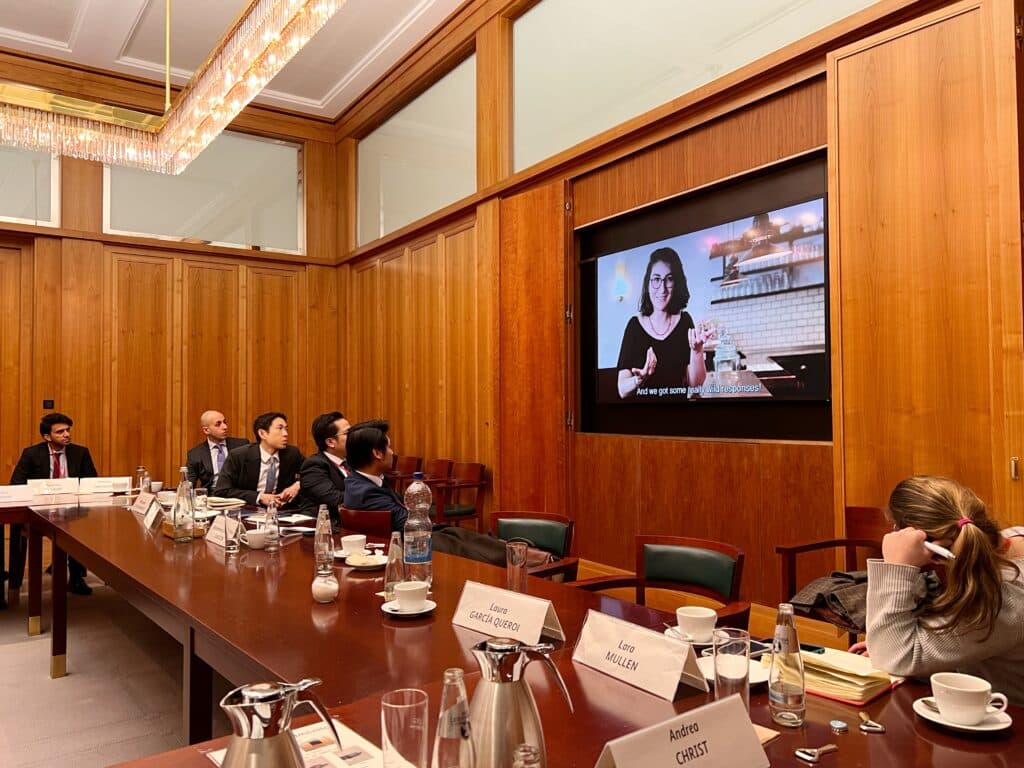Last week, we were invited by the German Federal Foreign Office (Auswärtige Amt) to present at the 13th International Diplomats Programme. Our presentation focused on the topic of Germany as an immigration country as well as the work of Migration Matters in shifting perceptions and addressing polarizing migration narratives.
The participants were early career diplomats hailing from a range of countries around the world, including Egypt, Costa Rica, Israel, Canada, Mexico, Bangladesh, Brunei, Paraguay, Indonesia, and many more.
We started with an ice-breaker activity to explore how the diplomats perceived Germany: did they see it as a country of immigration and what does “country of immigration” actually mean? The answers were mixed: some viewed Berlin as an international bubble but weren’t sure the rest of the country was as diverse, others thought that numbers-wise Germany was indeed a country of immigration but didn’t necessarily present itself that way to the rest of the world.
After the ice-breaker, we screened a few videos from our Rethinking ‘Us’ & ‘Them’: Integration and Diversity in Europe series. The videos featured academic expert Dr. Naika Foroutan, people from the streets of Berlin, and two practitioners sharing their research and perspectives on diversity and migration in Germany today. We then looked at some facts on immigration to Germany today – did you know Germany’s foreign-born population at around 14% is comparable to that of the United States? – and dove into the work of Migration Matters in digital storytelling, dialogue, and capacity building.
During the larger discussion after the presentation, the participants were primarily interested in the topics of hybrid-identities and whether Germany has and/or how long it will take Germany to embrace this concept (compared to a country like Canada or the United States), the upcoming citizenship reforms that will make dual citizenship a reality for all, and the skills shortage (Fachkräftemangel) and potential economic impact of increased immigration.
